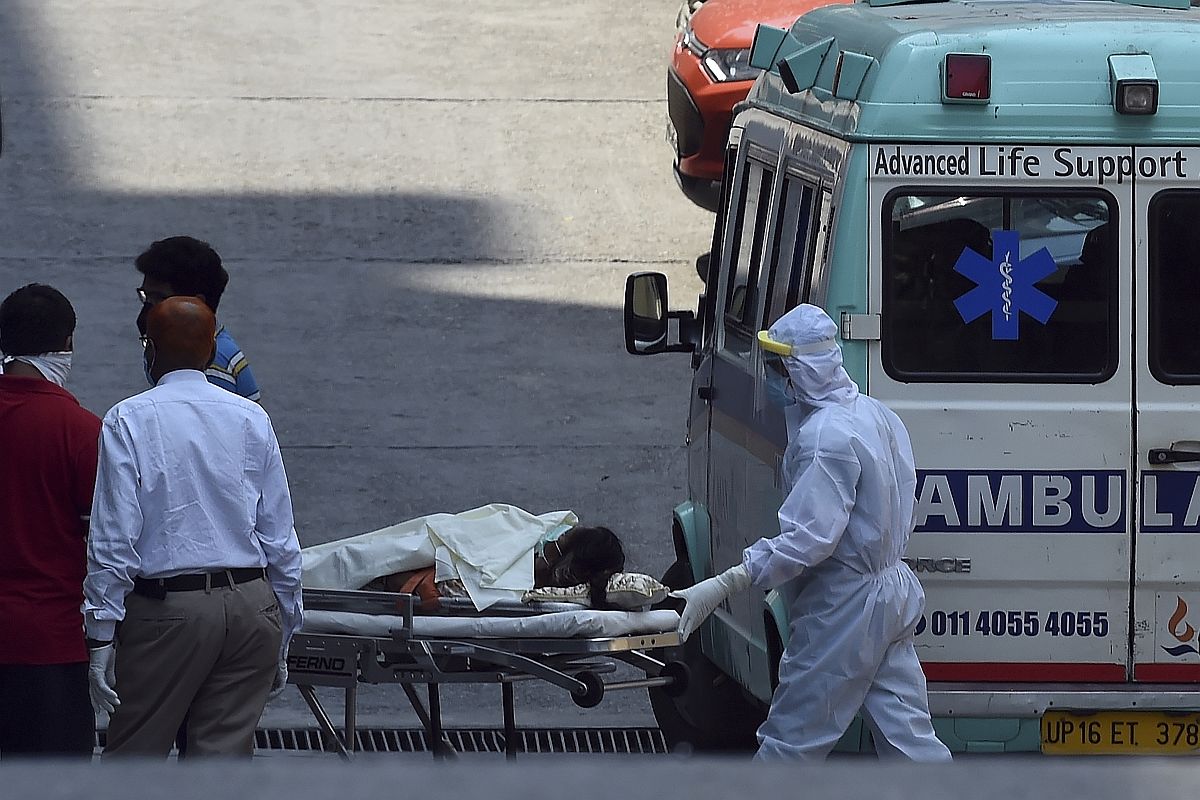Amid reports of hospitals turning away people, Delhi government on Thursday issued a new standard operating procedure on handling Coronavirus positive patients.
As per the new guideline, all hospitals have been directed to shift the patient from the vehicle to the triage area in 15 minutes without asking for details.
In an order issued on Thursday, Padmini Singla, Secretary, Health and Family Welfare Department, divided the Standard Operating Procedure (SOP) into four segments — reception of COVID patients at the hospital; admission of a patient; treatment and test; and discharge.
“(The) Covid patient shall be brought by hospital staff from the ambulance or whichever vehicle used by the patient reaching hospital, to the triage area, without asking for details. This process must be completed in 15 minutes,” it said.
Doctors on triage duty are to attend to the patient within an hour depending upon urgency of requirement of treatment. Food and water should be available in the waiting area as well, the SOP stated.
“Refreshment should be made available to the patients in the triage area. The doctor on triage duty in consultation with a specialist, if required must decide the actions. The patient must not be made to stay in triage for more than 3 hours,” it added.
For admission of the patient, it says the patient shall be admitted in appropriate ward for the level of treatment required at the hospital as per the medical condition assessed by doctors.
“The patient is required to be shifted from one bed to other depending upon facilities which is required for the patient.”
If beds are not available at the hospital, then it will be entirely the responsibility of the hospital to transfer the patient to another one and till then the hospital will have to provide medical care to the patient.
For the transfer of a patient to Covid Care Centre (CCC), it said if the patient does not require further treatment and falls under the category of mild-moderate symptom patient where home quarantine is allowed but he/she do not have enough space at their home, he/she shall be transferred to CCC by the hospital after basic counselling before such transfer. Bed availability should be coordinated with the nodal officer of the CCC.
Also, if the patient dies at the hospital at triage or brought dead, the patient has to be shifted to the mortuary after disinfection by the hospital.
During the stay at the hospital or hospital triage, if a patient feels that he is not being treated as per the protocol or admission is being denied or delayed without reasonable explanation, or there is any other grievance relating to food, medical care, hygiene and sanitation, he can approach the hospital helpline number.
The hospital authorities have been directed to maintain a dedicated, round-the-clock helpline for complaints from patients on treatment or quality of food and other facilities.
The SOP said the admitted patients shall be managed as per the medical protocol and COVID tests of the patient shall be done as per the latest orders issued in this regard.
“The patient shall be provided timely morning tea, breakfast, lunch, evening tea, dinner and fruits twice a day. One bottle of potable water shall be provided with lunch and dinner respectively,” it added.
It further said the admitted patient shall be discharged from the hospital as per the medical protocol after the patient tested Covid negative as per the latest orders issued in this regard.
The new guidelines came on a day when a elderly man died and the family alleged he was denied entry by the hospital. However, the hospital has refused all such claims saying that the man was brought dead.
Chief Minister Arvind Kejriwal had on Tuesday said the government has made all the arrangements for beds, ICUs and ventilators.
Taking note of the complaints and to help people track availability of hospital beds and ventilators, Kejriwal also launched the ‘Delhi Corona’ app.
Also, for all information related to hospitals and beds, the AAP government launched the helpline number 1031 – that will inform through an SMS the status of bed availability in Delhi hospitals.
Last week, Kejriwal had informed that 117 private hospitals have been asked to reserve 20 per cent beds for COVID-19 patients.
In a warning to the private hospitals, Kejriwal also said that Coronavirus patients “can’t be turned away”.
Coronavirus cases in the national capital witnessed a jump of 1,359 cases in a day, taking the total tally to 25,004 till Friday morning. As many as 650 people have succumbed to the deadly infection.
On May 28, for the first time since the outbreak of the infection, the cases reported in a day crossed 1,000-mark, at 1,024. May 29 was the second time that positive cases saw such a massive jump with 1,106 cases reported in a day. On May 30, 1,163 cases were reported in a day while on May 31, 1,295 cases were reported.
On Wednesday, a record 1,513 cases were reported.
The spike in cases come as the Delhi government has resumed all businesses in all areas except the containment zones.
On May 30, Chief Minister Arvid Kejriwal had said that the national capital “cannot have a permanent lockdown”, even as he admitted that the city has been witnessing a surge in Coronavirus cases.
Subsequently on June 1, he announced that barber shops and salons will be allowed to reopen apart from whatever was permitted till now. However, spas will remain closed.
The chief minister also announced that all shops will be allowed to open from now on. So far, Delhi had been following odd-even rule for shops in markets.
Also, the state government has lifted restrictions on the number of passengers travelling in autos, e-rickshaws and other vehicles.











